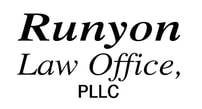Be Charitable with IRAs
If you're still with me, it probably won't come as a surprise that many people's largest financial asset these days may be their IRA. They've been having a portion of their paychecks tossed in there for years and it's built up tax-free to quite a nice nest egg. If they name their spouse or children as the beneficiaries, though, all that deferred income tax will start coming home to roost, and while the blow may be softened by a payout over a number of years, those taxes are going to get paid eventually. That is, unless at least some of the account is payable to your favorite charitable organization(s), in which case the tax liability on that portion disappears and the tax-exempt charity gets 100% of your generosity.
So. here's a strategy that could work for you: you might designate one or more charitable beneficiaries of at least a percentage of your IRA, and then use other assets for helping out the familial objects of your affection. For example, if you have non-IRA securities, or the family homestead, or valuable personal property, those assets would all be revalued at death to reflect their current worth (it's called a "stepped-up" basis), and your beneficiaries then could liquidate them without payment of ordinary income or capital gains tax.
If an outright distribution of hard-earned IRA funds to charity is going down hard, then you might consider using some of the IRA to fund a testamentary gift annuity. That's where the funds go to the charity at your death - again tax-free - but the charity pays your spouse or children a regular income from the funds for the rest of the beneficiary's life. Only when the designated beneficiary is gone will the remaining funds actually belong to the organization. In fact, this may be the real win-winner of alternatives, because not only are all those pent-up income taxes avoided on the charitable portion of the IRA, but your family continues to benefit from them at a pretty favorable rate of return.
Finally, I want to shift gears slightly and correct a misconception that's been floating out there for sometime about so-called donor-advised funds at the NHCF. That's where you set up an account with them, fund it with the assets you're willing to devote to charitable contributions, and then decide, usually on an annual basis, how to make distributions to the organizations you want to benefit. For years it's been the common understanding that those DAF accounts were essentially perpetual. That doesn't have to be the case, though, and if your favorite non-profit has a pressing need for all your funds, you can retain the right to have the whole account paid out immediately. That just gives you one more flexible option, while still achieving a current income tax deduction when the DAF is created.
I don't plan to go on here about how important being charitable is, although we here in New Hampshire seem to be more frugal, shall we say, than our friends living nearly anywhere else. Just think about all the schools we went to that got us where we are, all the service organizations that have helped us out over the years, and all the non-profits - more like no-profits - that have made life here so enjoyable. It wouldn't hurt to recognize them just a little in the end - and paying it forward is a valuable example for our families, as well.
Posted 07/24/2015 - estate planning
